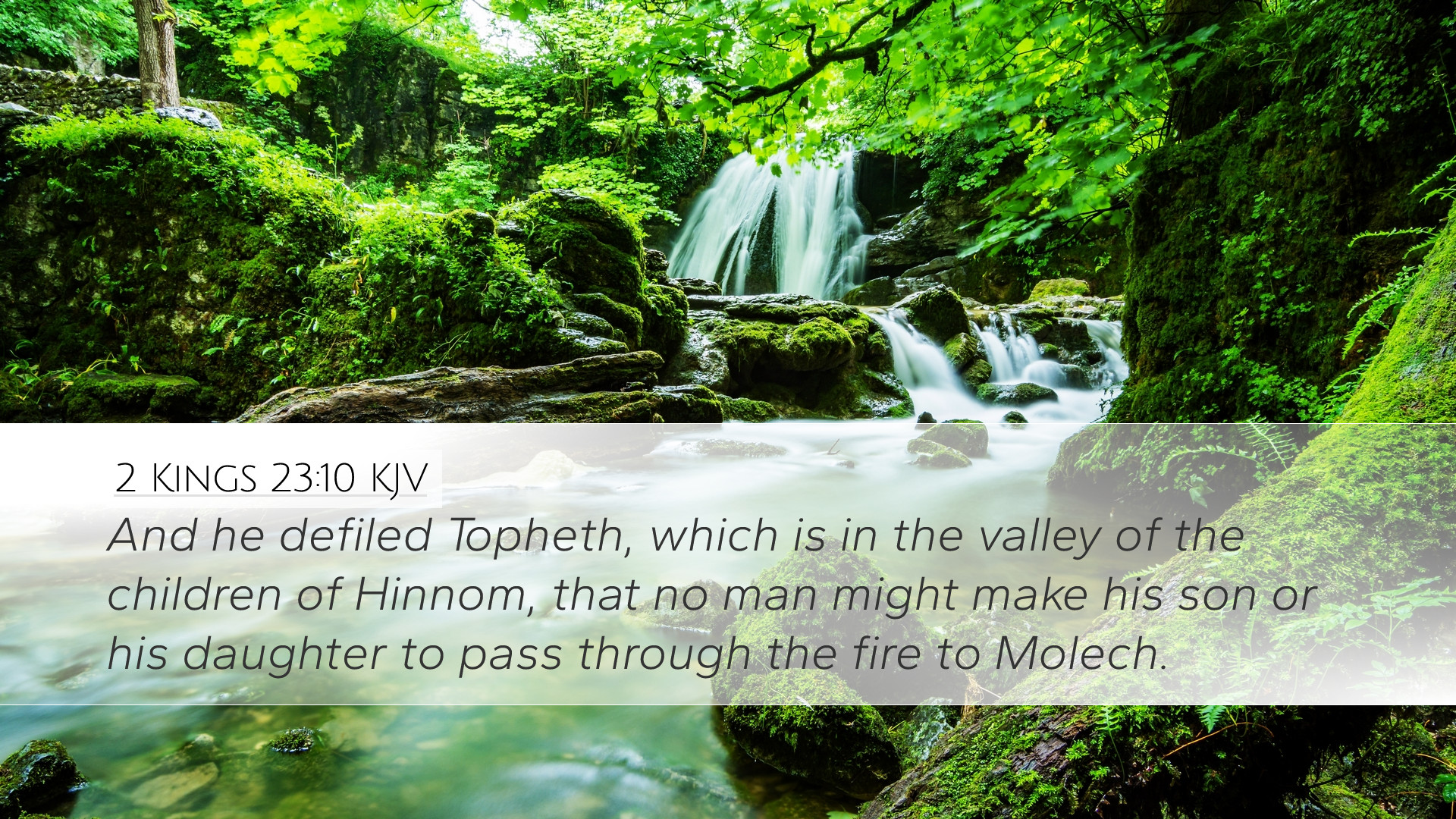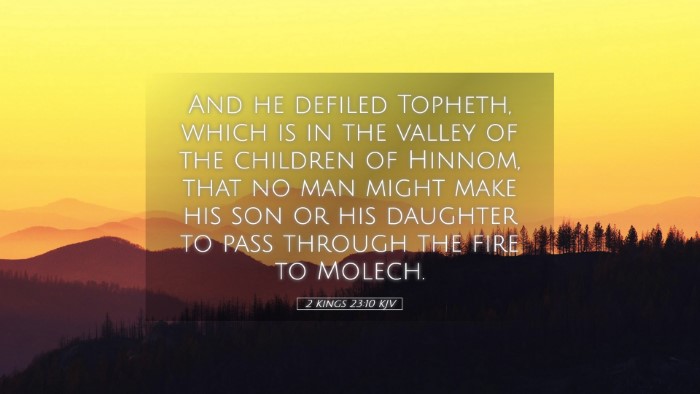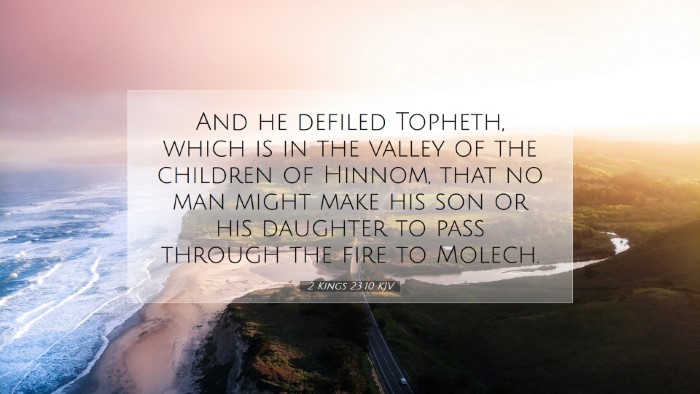Expository Commentary on 2 Kings 23:10
2 Kings 23:10 states:
"And he defiled Topheth, which is in the valley of the children of Hinnom, that no man might make his son or his daughter to pass through the fire to Molech."
Context and Background
This verse is situated in a critical period of Judah’s history, during the reign of King Josiah, who sought to restore true worship to Yahweh and reform the practices of idolatry that had infiltrated the nation. Topheth, located in the Valley of Hinnom, was a site associated with the abominable worship of Molech, involving child sacrifice, which was vehemently condemned in Hebrew Scriptures.
Commentary Insights
Matthew Henry
Matthew Henry emphasizes the moral implications of Josiah’s actions. He notes that by defiling Topheth, the king sought to eradicate not only a physical location of sin but also a practice that symbolized the abandonment of covenant loyalty to God. Henry highlights that such acts of devotion to Molech were a detestable perversion of worship and an offense to God’s holiness. The king’s zeal reflects a deep commitment to restoring the purity of worship and aligning the hearts of the people back to God.
Albert Barnes
Albert Barnes provides a historical perspective on the practice of child sacrifice. He underscores its prevalence in ancient near-eastern cultures, where it was seen as a means of ensuring divine favor. Barnes points out that the act of "defiling" Topheth indicates a physical act of desecration, illustrating that such practices must not only be renounced in thought but also publicly abolished. He comments on the gravity of preventing such hideous acts, as they were a direct affront to God’s law and character.
Adam Clarke
Adam Clarke delves into the implications of the term "Molech" and the associated worship rites. He notes that the fire to Molech was often part of a grim ritual that involved horrifying levels of human sacrifice, specifically children. Clarke elaborates on the phrase “pass through the fire,” indicating a ritual act to consecrate the children to Molech by offering them in flames. This horrifying act demonstrates the height of idolatry and the darkness that enveloped Judah prior to Josiah’s reforms. Clarke implies that Josiah’s actions were not just political but fundamentally spiritual, aiming to rekindle the covenant relationship between God and His people.
Theological Themes
- Idolatry and its Consequences: The worship of false gods leads to moral and societal decay. The inclination to turn toward Molech reveals the vulnerabilities of humanity, emphasizing the necessity of faithfulness to the one true God.
- God’s Sovereignty: Josiah’s reforms were a testimony to the sovereignty of God over His people, urging them to turn away from pagan practices and return to covenant fidelity.
- Restoration and Repentance: The proactive measures taken by Josiah illustrate the path of restoration that follows genuine repentance. God delights in a heart that seeks to amend its ways.
- Value of Human Life: The abhorrence of child sacrifice demonstrates the intrinsic value of human life in God's creation. As image-bearers, each life holds profound worth in His divine plan.
Application for Believers
As modern believers reflect on 2 Kings 23:10, there are several pertinent lessons to consider:
- Vigilance Against Idolatry: Just as Josiah sought to eradicate idolatrous practices, Christians today must vigilantly guard against contemporary forms of idolatry, ensuring that their priorities align with Scriptural truth.
- Promoting Life and Justice: The church is called to advocate for the sanctity of life, challenging societal norms that devalue human existence.
- Encouragement and Support for Reform: Believers are encouraged to support leaders and movements that align with God’s will, similar to Josiah’s reforms, thereby promoting justice and righteousness within their communities.
Conclusion
In summary, 2 Kings 23:10 serves as a stark reminder of the consequences of abandoning God for the allure of idolatry. The responses of King Josiah offer profound insights into the nature of true repentance and the divine call to restore holiness. As pastors, theologians, and students of the Word, let this passage challenge us to evaluate our commitments and ensure they honor the God we serve.


